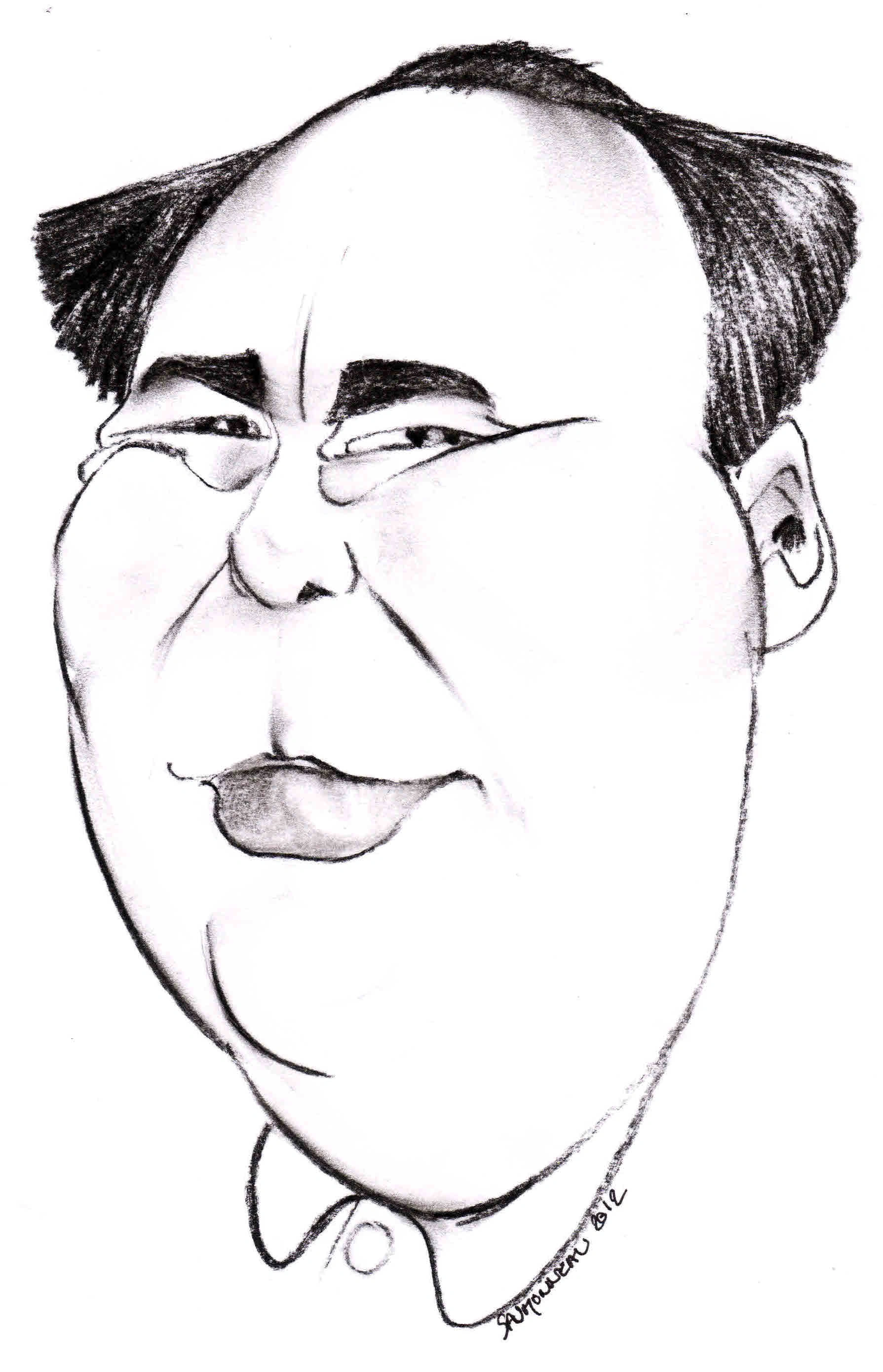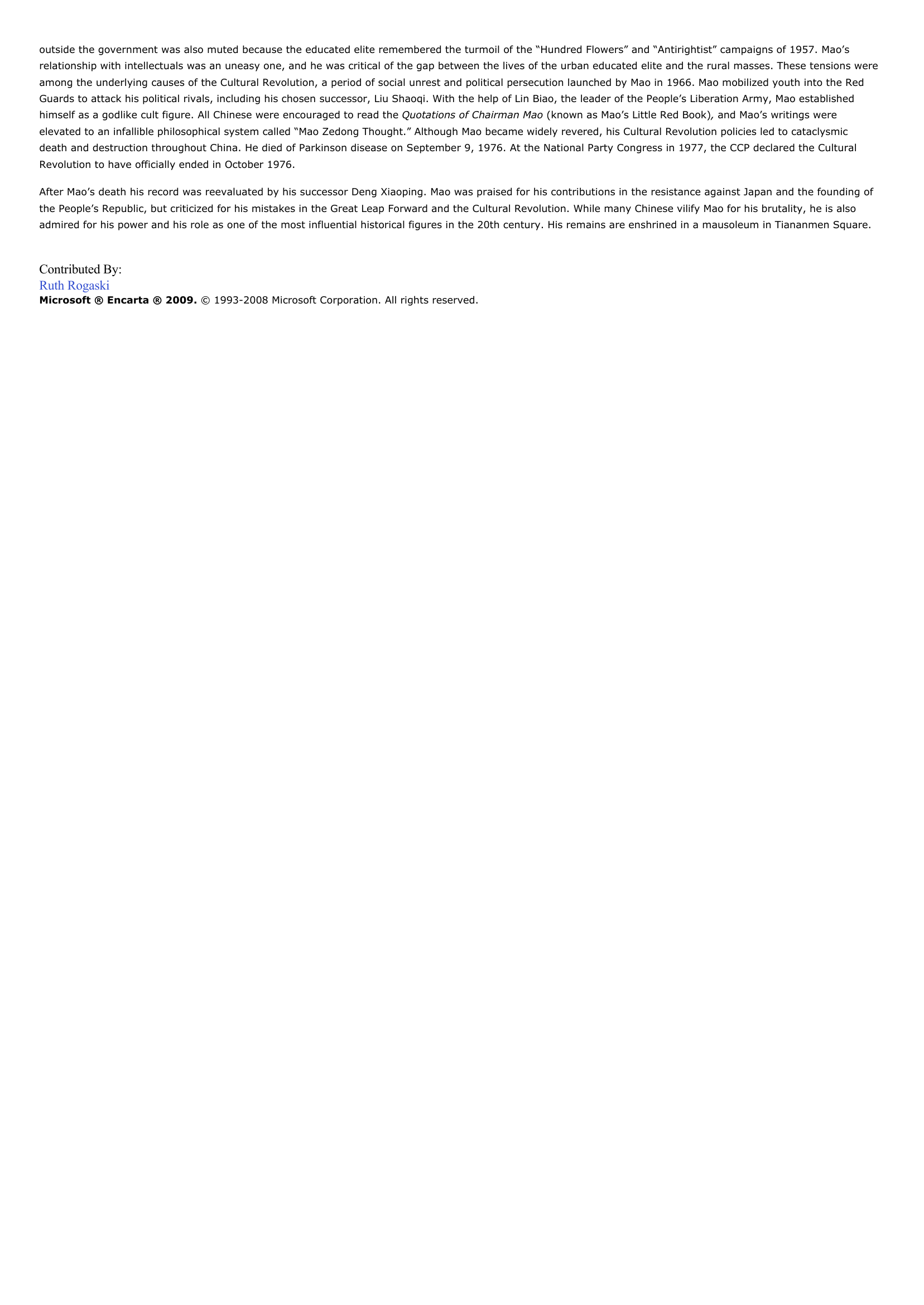Mao ZedongIINTRODUCTIONMao Zedong (1893-1976), foremost Chinese Communist leader of the 20th century and the principal founder of the People's Republic of China.
Publié le 10/05/2013

Extrait du document


«
outside the government was also muted because the educated elite remembered the turmoil of the “Hundred Flowers” and “Antirightist” campaigns of 1957.
Mao’srelationship with intellectuals was an uneasy one, and he was critical of the gap between the lives of the urban educated elite and the rural masses.
These tensions wereamong the underlying causes of the Cultural Revolution, a period of social unrest and political persecution launched by Mao in 1966.
Mao mobilized youth into the RedGuards to attack his political rivals, including his chosen successor, Liu Shaoqi.
With the help of Lin Biao, the leader of the People’s Liberation Army, Mao establishedhimself as a godlike cult figure.
All Chinese were encouraged to read the Quotations of Chairman Mao (known as Mao’s Little Red Book) , and Mao’s writings were elevated to an infallible philosophical system called “Mao Zedong Thought.” Although Mao became widely revered, his Cultural Revolution policies led to cataclysmicdeath and destruction throughout China.
He died of Parkinson disease on September 9, 1976.
At the National Party Congress in 1977, the CCP declared the CulturalRevolution to have officially ended in October 1976.
After Mao’s death his record was reevaluated by his successor Deng Xiaoping.
Mao was praised for his contributions in the resistance against Japan and the founding ofthe People’s Republic, but criticized for his mistakes in the Great Leap Forward and the Cultural Revolution.
While many Chinese vilify Mao for his brutality, he is alsoadmired for his power and his role as one of the most influential historical figures in the 20th century.
His remains are enshrined in a mausoleum in Tiananmen Square.
Contributed By:Ruth RogaskiMicrosoft ® Encarta ® 2009. © 1993-2008 Microsoft Corporation.
All rights reserved..
»
↓↓↓ APERÇU DU DOCUMENT ↓↓↓
Liens utiles
- Cultural Revolution I INTRODUCTION Cultural Revolution (1966-1976), political campaign in China, launched in 1966 by Chinese Communist Party chairman Mao Zedong to eliminate his political rivals and revolutionize Chinese society.
- Winston Churchill I INTRODUCTION Winston Churchill (1874-1965), British politician and prime minister of the United Kingdom (1940-1945, 1951-1955), widely regarded as the greatest British leader of the 20th century.
- Adolf Hitler I INTRODUCTION Adolf Hitler (1889-1945), German political and military leader and one of the 20th century's most powerful dictators.
- Henri Matisse Henri Matisse (1869-1954), French artist, leader of the fauve group (see Fauvism), regarded as one of the great formative figures in 20th-century art, a master of the use of color and form to convey emotional expression.
- Expressionism I INTRODUCTION Auguste Rodin Regarded as the foremost sculptor of the 19th and 20th centuries, French artist Auguste Rodin captured both dynamic movement and inner psychological states.












